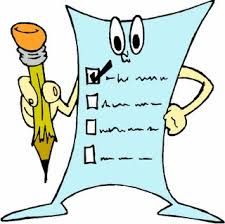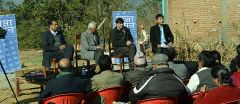![]()
![]()
![]()
Use LEFT and RIGHT arrow keys to navigate between flashcards;
Use UP and DOWN arrow keys to flip the card;
H to show hint;
A reads text to speech;
34 Cards in this Set
- Front
- Back

|
Yawn: To open the mouth wide with a deep inhalation, usually involuntarily from drowsiness, fatigue, or boredom.
|
|

|
Expose: To subject or allow to be subjected to an action, influence, or condition.
|
|

|
Exchange: To give and receive reciprocally; interchange
|
|

|
Gather: To cause to come together; convene.
|
|

|
Nod: To lower and raise the head quickly, as in agreement or acknowledgment.
|
|

|
Frown: To regard something with disapproval or distaste.
|
|

|
Nourish: To keep alive; maintain. To provide with food or other substances necessary for life and growth; feed.
|
|

|
Encourage: To inspire with hope, courage, or confidence; hearten, to give support.
|
|

|
Support: To hold in position so as to keep from falling, sinking, or slipping.
|
|

|
Paraphrase: A restatement of a text or passage in another form or other words, often to clarify meaning.
|
|

|
Appeal: A resort to a higher authority or greater power, as for sanction, corroboration, or a decision.
|
|

|
Aware: Having knowledge or cognizance.
|
|

|
Agree: To come into or be in accord, as of opinion.
|
|

|
Quote: To repeat or copy the words of (another), usually with acknowledgment of the source.
|
|

|
Apply: To devote (oneself or one's efforts) to something.
|
|

|
Authenticate: To establish the authenticity of; prove genuine.
|
|

|
Credit: Belief or confidence in the truth of something. A reputation for sound character or quality; standing.
|
|

|
Deserve: To be worthy of; merit.
|
|

|
Acknowledge: To express recognition of.
|
|

|
Share: A part or portion belonging to, distributed to, contributed by, or owed by a person or group.
|
|

|
Setting: The time, place, and circumstances in which a narrative, drama, or film takes place.
|
|

|
Beyond: That which is past or to a degree greater than knowledge or experience; the unknown.
|
|

|
Awareness: Having knowledge or cognizance.
|
|

|
Accuracy: Conformity to fact.
|
|

|
Knowledge: Familiarity, awareness, or understanding gained through experience or study. Specific information about something.
|
|

|
Deceitful: Deliberately misleading; deceptive. Being dishonest.
|
|

|
Quotation: An explicit reference or allusion in an artistic work to a passage or element from another, usually well-known work.
|
|

|
Arguments: A fact or statement put forth as proof or evidence; a reason.
|
|

|
Up-to-date: Informed of or reflecting the latest information or changes.
|
|

|
Plagiarism: the unauthorized use of the language and thoughts of another author and the representation of them as one's own.
|
|

|
Truthfulness: Consistently telling the truth; honest. Corresponding to reality; true.
|
|

|
Fairness: free from favoritism, self-interest, or preference in judgment.
|
|

|
Misleading: tending to confuse or mislead; deceptive.
|
|

|
Source: One, such as a person or document, that supplies information.
|

